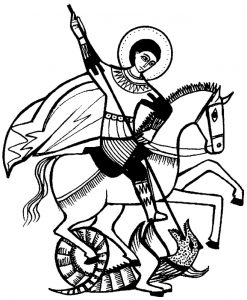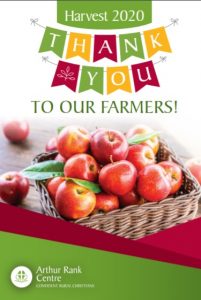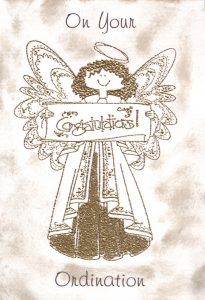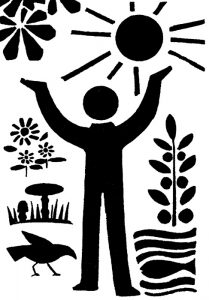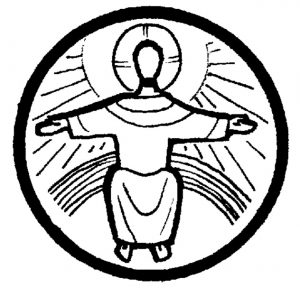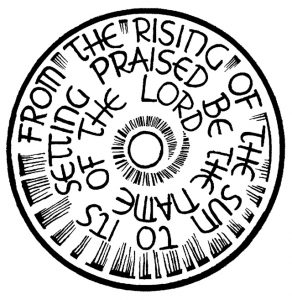Harvest
Link to video reflection: https://youtu.be/L62HWbLBIRM
2 Corinthians 9:6-end, Luke 12:16-30
In the name of God creator, redeemer and sustainer. Amen
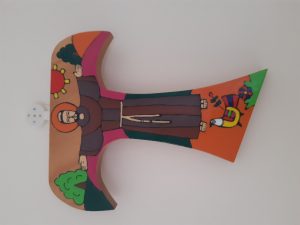 Today is our harvest festival and it is also the day when we remember St Francis across the church. I have been very fond of and very influenced by the ideas of Francis for a long time! Just to remind us of Francis story – He gave up a life of riches and opulence, as the son of cloth merchant in the middle ages to be an itinerant friar and to set up an organisation for followers who wanted to live their Christian life as he did. Francis cherished embracing poverty and living alongside the poorest alongside sharing his love of Jesus practically and passionately. Francis’ approach was a stark contrast to the Church of his day… Francis is associated with animals and the natural world and a very fitting saint to share our harvest celebration alongside.
Today is our harvest festival and it is also the day when we remember St Francis across the church. I have been very fond of and very influenced by the ideas of Francis for a long time! Just to remind us of Francis story – He gave up a life of riches and opulence, as the son of cloth merchant in the middle ages to be an itinerant friar and to set up an organisation for followers who wanted to live their Christian life as he did. Francis cherished embracing poverty and living alongside the poorest alongside sharing his love of Jesus practically and passionately. Francis’ approach was a stark contrast to the Church of his day… Francis is associated with animals and the natural world and a very fitting saint to share our harvest celebration alongside.
In The little flowers of St Francis – which are an early account of stories of his life is the little gem I am going to read us – which relates to that gospel we just heard
One day (as Francis was walking along), he saw some trees in which there was an almost infinite multitude of birds. St. Francis marvelled at this and said to his companions: “You wait for me here on the road, and I’ll go and preach to my sisters the birds.” . . . “My sister birds, you owe much to God your Creator and you ought to praise Him always and everywhere because He has given you the freedom to fly everywhere, and has given you two and three layers of clothing. . . Furthermore you neither sow nor reap, and God feeds you, and gives you the rivers and springs for your drink; and he gives you the mountains and valleys as your refuge, the high trees to make your nests, and since you do not know how to spin or sew, He clothes you, you and your little ones. Therefore, your Creator loves you very much, since He gives you so many benefits. So beware, my sisters, of the sin of ingratitude and always strive to praise God.
Francis makes a point in that story – about being thankful and grateful (which is opposite of as he puts it the sin of ingratitude). One of the things central to our marking of harvest – is the need to be thankful and grateful. Thankful and grateful to God for all we have and thankful and grateful to those who grow, harvest, produce and retail our food. Many of whom have put themselves at risk in our current Covid days, to maintain our food supplies (and even when in March people were panic buying and stripping the shelves – I never did understand why toilet roll was so important at that point).
Thankfulness is an important discipline in the Christian life, as it helps us to keep things thoroughly in perspective and not get things out of balance. I have long found it useful to look for something to be thankful for at the end of each day and particularly when the going gets tough as it certainly is at the moment. Over the past couple of weeks, I’ve found myself and others abit up and down. The news appears to be going in the wrong direction. It is clear we are looking a way in to the distant future for something more like life as we knew it. Yet the good people of Wincanton (and Pen Selwood for that matter) have weathered storms and epidemics before.
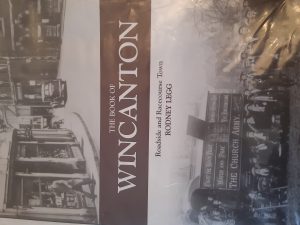 I have recently been reading this book – The book of Wincanton – by Rodney Legg. This book describes a particularly poor patch for Wincanton over 10 years or so near the beginning of the 18th century. Firstly in November 1703 there was a great storm (causing considerable structural damage to some of the thatched and timbered buildings) – particularly those in a poor state of repair (or housing the poorest inhabitants). During the storm the ceiling of the Bishop’s palace in Wells collapsed killing the Bishop and his wife. Many cattle and sheep were killed in the surrounding area (15,000 or more – which would have been truly devastating!)
I have recently been reading this book – The book of Wincanton – by Rodney Legg. This book describes a particularly poor patch for Wincanton over 10 years or so near the beginning of the 18th century. Firstly in November 1703 there was a great storm (causing considerable structural damage to some of the thatched and timbered buildings) – particularly those in a poor state of repair (or housing the poorest inhabitants). During the storm the ceiling of the Bishop’s palace in Wells collapsed killing the Bishop and his wife. Many cattle and sheep were killed in the surrounding area (15,000 or more – which would have been truly devastating!)
The impact of the great storm could still be seen across Wincanton a couple of years later and then this impact compounded by ravaging fires in 1705 and again in 1707. In the latter one, some 44 buildings were lost and it is remembered as the ‘Great fire’. Imagine if our house and that of our nearest 44 neighbouring properties were burnt today. I don’t know how big the population of Wincanton was at this point, but that is a huge number and would have brought significant hardship. Fires decimate property leaving individuals today with just what they are standing up in,
The book continues to describe difficulties caused by blocked wells, rain damage and depravation after the storm and then reasonably inevitably issues with pestilence. With then small pox epidemics ravaging the town – with a particularly virulent outbreak in 1711 – which claimed 88 lives, (which again must have run shockwaves through the community). All of that reminds us that tough times are how things go sometimes and in the midst of our own tough times currently it does give us food for thought!
One of the things it makes us think in the context of harvest is about being thankful, for all we have, for the bounty of our good earth and for full tummies at meal times. Yes, we have had to endure six very disturbed and worrying months and Yes, we have the prospect of many more ahead of us. But we do have roofs over our heads, and the vast majority of us have access to all the basic necessities.
 Our gifts brought for harvest this year will go to the Lord’s larder and I know will be very welcome. They will help meet the increasing need the Lord’s larder identifies in their current publicity. They have been experiencing unprecedented demand and the campaigns of Marcus Rashford and the like have helped to bring to prominence the need to make sure everyone has the basic necessities of life in these difficult times.
Our gifts brought for harvest this year will go to the Lord’s larder and I know will be very welcome. They will help meet the increasing need the Lord’s larder identifies in their current publicity. They have been experiencing unprecedented demand and the campaigns of Marcus Rashford and the like have helped to bring to prominence the need to make sure everyone has the basic necessities of life in these difficult times.
As well as being thankful our first reading today points to the importance of being generous in sharing what we have. In fact Paul puts it for him very plainly – You will be enriched in every way for your great generosity. My experience of life and all it has to offer us is that the more we put into it, the more we share what we have, and the more we are open-hearted rather than closed hearted and protectionist, the more we are blessed. As the well-known prayer attributed to St Francis that starts – make me a channel of your peace – puts it It is in giving that we receive…
There are many ways we can be generous in life. Not just with all that we have but with our time and our energy. Maybe in supporting friends and neighbours. Being a listening ear and picking up the phone to have a chat with someone having a lot of time home alone.
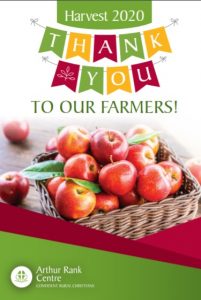 In praying and supporting our local economy – farmers, producers and retailers. If we haven’t already do print out the poster from the Arthur Rank centre for harvest to thank our farmers and display it in a prominent window at home. It may even be at this time of our annual meetings, we could be generous with our time in serving on the PCC or in other roles. Please speak to the wardens asap if that could be you….
In praying and supporting our local economy – farmers, producers and retailers. If we haven’t already do print out the poster from the Arthur Rank centre for harvest to thank our farmers and display it in a prominent window at home. It may even be at this time of our annual meetings, we could be generous with our time in serving on the PCC or in other roles. Please speak to the wardens asap if that could be you….
Two final things to say – Living thankfully and generously inspired by our harvest thanksgiving also means moving away from the mentality that our gospel reading starts with ‘Of building bigger barns for ourselves’. It also means moving away from worrying where are gospel ends – which clearly says ‘Do not keep worrying’
We end with the prayer attributed to St Francis I alluded to earlier – let us pray
Lord, make me an instrument of your peace: where there is hatred, let me sow love;
where there is injury, pardon; where there is doubt, faith; where there is despair, hope;
where there is darkness, light; where there is sadness, joy. O divine Master, grant that I may not so much seek to be consoled as to console, to be understood as to understand, to be loved as to love. For it is in giving that we receive, it is in pardoning that we are pardoned, and it is in dying that we are born to eternal life. Amen.
References:
New Revised Standard Version Bible: Anglicised Edition, copyright © 1989, 1995
Arthur Rank centre resources – Thank you for our farmers 2020
Rodney Legg – the book of Wincanton – 2005 published by the British library
The little flowers of St Francis http://www.sjpcommunications.org/images/uploads/documents/francisreadingsyearc.pdf

